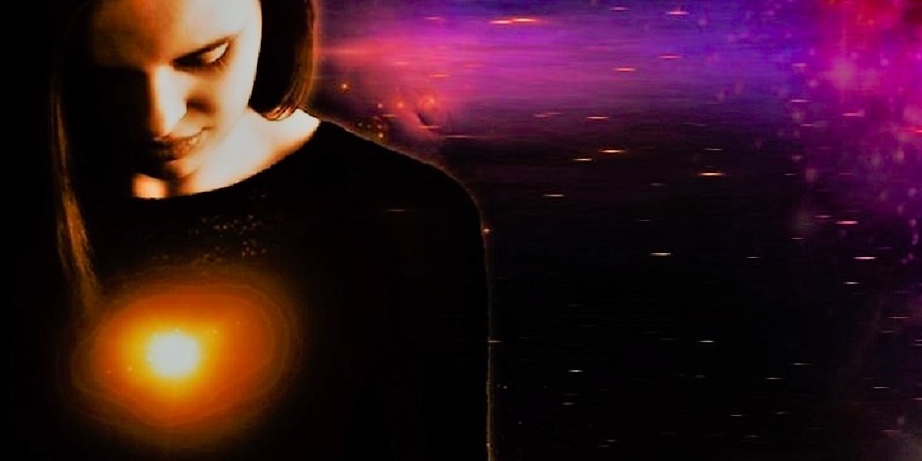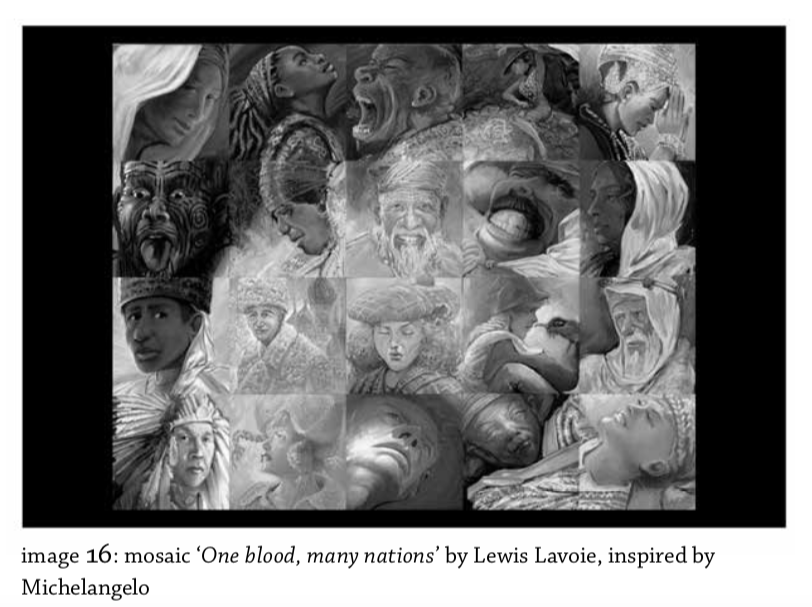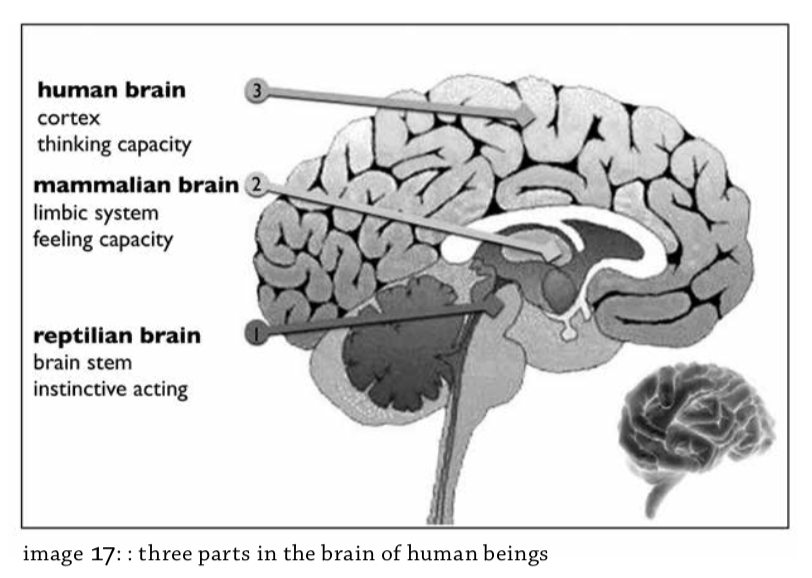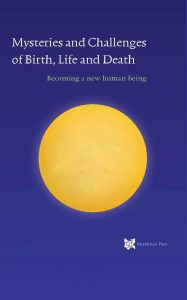Challenges of Birth, Life and Death – Accomplishing the law of love
Chapter 13 of Mysteries and Challenges of Birth, Life and Death
The law of love, which upholds the entire cosmos, is immeasurably strong and unassailable and so are those who fulfill this law. The words of the Psalmist: ‘Though I walk in the valley of the shadow of death, what should I fear? Your rod and your staff comfort me’ testify of the spirit and reality in which the white builders live and work.
That is why the spiritual school, which proclaims the law of love, does not force itself on anyone. It does not compel anyone because the law of love has to be reacted to spontaneously and in freedom, as the result of an inner awakening, an inner awareness. Only then does love have any value.
Sometimes the spiritual school does create situations or certain conditions to induce people to reflect, to bring them to insight and awakening, but no one will ever be personally compelled. For it is not compulsion, but inner awakening and awareness that lead to liberation.
J. van Rijckenborgh,
Elementary Philosophy of the Modern Rosycross, chapter 3
An enlightened master once asked his pupils: “Can you tell me when you know exactly that the night is over and the day has begun?”
One of the pupils said, “It’s when you see an animal walking in the distance and you can say for sure it’s a dog. ”
“No, ” said the master, “that’s not it. ”
Another pupil said, “It’s when you see a tree in the distance and you can say for sure it’s an apple tree.”
‘No, ” said the master, “That’s not it. ”
“When is it then?” asked the pupils.
“It is, said the master, ‘when you perceive the face of any arbitrary man or woman and recognise that it is your brother or sister. ”’
In this story, the pupils are reasoning from their sensory perception and their mind. The master’s consciousness, on the other hand, is nourished by the source of inner wisdom, a wisdom that has its roots in the unity underlying all existence and that is characterised by a cosmic dimension, a divine dimension and a human dimension.
As biological beings, we are all residents of mother earth as human beings, we are made up of her elements and we all breathe in her atmosphere. As spiritual beings, as microcosms, we have all come from the Divine Primordial Source, and will return to it again. As a personality, we have the same types of thoughts, feelings and willing as our fellow human beings and, thanks to others, we can develop.
We owe the postmodern society with all its achievements to an intensive cooperation between people, in which the great whole learns from knowledge and experiences gained individually and collectively. Isaac Newton, the brilliant English physicist from the seventeenth century, emphasised this in a letter to a colleague in which he writes:
‘If I have seen beyond others it is because I stood on the shoulders of giants’. He thereby acknowledged that others had done important work that he had used. At a deeper level, we are all united and connected together as people. This is expressed, among other things, in the observation that many scientific discoveries or technical inventions are made almost simultaneously by researchers or technicians who have no knowledge of each other or each other’s work. So Isaac Newton (1643-1727) in England and Gottfried Wilhelm Leibnitz (1646-1716) in Germany simultaneously and independently developed methods of infinitesimal calculation. The German Johannes Gutenberg (1397-1468) is generally known as the inventor of the printing press in Europe, but at almost the same time the Dutchman Laurens Jansz Coster (1370-1440) from Haarlem also developed a usable printing technology.
I am because we are
In primitive societies it was extremely important that you, as a person, were part of a tribe, because herewith you increased your chances of survival. Others helped to ensure that you had enough to eat, protected you and your family against predators and robbers, and contributed to your sense of well-being, because people simply are social beings. The great importance of togetherness is strongly expressed in the African philosophy known as ubuntu, which was also practiced by president Nelson Mandela and Archbishop Desmond Tutu, for example.
Someone with ubuntu is open to and accessible to others, devotes himself to others, does not feel threatened by the abilities of others because he or she draws enough self-confidence from the knowledge that he or she is part of a larger whole. The well-known ubuntu statement ‘I am because we are’ makes it clear that we can only develop an identity thanks to the community of which we are a part.
These days we no longer need to live in tribes. We are part of a highly individualised society in which we can generally manage well. But the need to be part of a valuable and satisfying larger whole has remained. And that is why we value a life partner, family, relatives, friends and maybe also associations, partnerships and (faith) communities. These are places where we feel comfortable and are nourished internally and/or externally.
It would be so nice if we could feel we were safe, known and appreciated everywhere around the world. Unfortunately that is not the case. A large majority of humanity experiences some form of struggle with other people. The ideal of brotherhood in society as a whole, which was strongly emphasised in the French Revolution (1789-1799), has not yet been achieved. The great political revolution at the end of the eighteenth century, in which the power of the nobility and the clergy was massively reduced, was accompanied by many acts of violence. Since then attention has been paid in the world to the well-known motto liberté, egalité, fraternité or: freedom, equality, brotherhood. This saying and the ideas behind it have contributed to the abolition of dictatorship in the Western world and the recognition of human rights.
Of course, freedom does not mean that we can just do anything, because there are cosmic laws that we must respect. True freedom obey the law. And if we break moral laws, we are corrected by the law of cause and effect, the law of karma. Real freedom also has nothing to do with avoiding all bonds. Bondage to pure autonomy is the worst form of bondage.
We live on earth to fulfill a life mission, and that is not possible if we persist in the great heresy of separation. That is why the voice of silence speaks to the student of the soul: ‘The selfish devotee lives to no purpose. The man who does not go through his appointed work in life – has lived in vain’ (The Voice of the Silence, II:52). Paul formu- lates this principle slightly differently: ‘For ye, brethren, were called for freedom; only use not your freedom for an occasion to the flesh, but through lovebe servants to one another’ (Galatians 5:13).
There are major differences between people. The principle of equality means that we recognise and appreciate the enormous varieties regarding for example gender, skin color, nationality, social position, possession, fame, health, age, sexual orientation, religion, education and level of consciousness, and consider all fellow human beings as equal. The Canadian artist Lewis Lavoie depicts this in an intriguing way in his mosaic ‘One blood, many nations’ inspired by Michelangelo’s famous fresco about the creation of man (see image 16).
It is a waste to try to achieve unity on a large scale in the sensory world. Plurality is fine. Let many flowers bloom! There is already unity in the dimensions of the soul and of the spirit, and it is about learning to live from those dimensions.
Equality can be perfectly combined with hierarchy. Most domains of society maintain a hierarchical structure in order to be able to manage the larger whole. The people who are in a higher position in some hierarchy do not differ fundamentally from people lower in the hierarchy, merely functionally: they have a broader field of vision, a broader scope and therefore bear greater responsibility. The quality of an organization is determined by the quality at the top.
Unfortunately it is still quite common that it is not the wisest people who work at the top of organizations, but the people with the biggest egos. The fact of hierarchy has therefore received a bad name, while it is nevertheless a logical order that can also be recognised in nature. The human body is also constructed through the hierarchical structure of atoms, molecules, cells, organs, body. In chapter 10 we already talked about the spiritual hierarchies and the universal Brotherhood.
Saint Germain
Rudolf Steiner has repeatedly pointed out that the famous threefold phrase ‘Freedom, equality, brotherhood’ was given as a universal principle for human relationships by the eighteenth century initiate who called himself Saint Germain. This European miracle man, who probably lived from 1696 to 1784, has, as a representative of the universal Brotherhood, made great efforts to promote the principle of brotherhood.
Max Heindel writes in his book ‘The Rosicrucian Cosmo-Conception’ that the count of Saint Germain was one of the later embodiments of the individual Christian Rosycross, the legendary founder of the Brotherhood of the Rosicrucians. The count allegedly could speak all languages and would have achieved unification with the holy spirit. The image emerging from other written sources is that Saint Germain talked about history as if he had been there himself. He composed good music and painted beautiful paintings. Moreover, he knew a lot about medicine and natural sciences. He was able to cure many with his medical knowledge, was an alchemist, promoted trade and industry and was a diplomat for many princes.
It is said that Saint Germain’s meditation slogan ‘freedom, equality, brotherhood’ was given to King Louis XV (1710-1774) in order to stimulate him to positive acts. However, this king at the decadent French court was more interested in women and parties than in his empire, and had his own motto that led him: ‘after us, the flood’. This is strongly reminiscent of the inharmonious mixed-metal statue of the king in the subterranean temple in Goethe’s fairy tale that says to the man with the lamp, the initiate, ‘Why would I care!’ Saint Germain, despite his efforts, was not able to prevent the political revolution in France at the end of the eighteenth century. An initiate can only give the light of his wisdom to those who are open to it.
The French revolution was primarily a struggle for freedom and equality. The ideal of brotherhood has been neglected in society as a whole, but it flourished in certain groups. It involved not only about religious organizations such as monastic orders, but also so-called lodges that originated from remnants of stonemasons’ guilds, the builders of cathedrals from the Middle Ages. People gathered in lodges to be inspired by the knowledge of mystery from the former stonemasons’ guilds and temple orders, among others, in order to relate them to the demand of the time.
Saint Germain visited countless lodges of freemasons, rosicrucians, kabbalists, humanitarians and temple knights, among others. There he gave lectures and tried to bring unity. His selfchosen name is meaningful. Sanctus Germanus means holy brother.
We are because Thou are
Most fraternities with pure intentions will recognise the Ubuntu statement ‘I am because we are’. This relates to the relationships among people at the level that is also called the horizontal dimension. A truly holy brotherhood will also recognise an aphorism that is at odds with it, yet at the same time coincides with it, and refers to the so-called vertical dimension: ‘We are because Thou are’. Herein ‘Thou’ refers to God, Allah, Brahma, Ahura Mazda, Ra, Tao, the Holy One, the Eternal, the Source or whatever name we want to give to the holy supreme authority. A holy brotherhood on earth maintains a living connection with the Supreme through the universal Brotherhood and the celestial multitude.
An individual can also connect the vertical dimension with the horizontal dimension and thus become a cross of light. Jesus gives a clear indication of this when a lawyer asks him what the greatest commandment is. Jesus then answers:
‘Thou shalt love the Lord thy God with all thy heart, and with all thy soul, and with all thy mind. This is the great and first command- ment. And a second like unto it is this, Thou shalt love thy neighbor as thyself. On these two commandments the whole law hangeth, and the prophets’ (Matthew 22:37-40).
The love to which Jesus refers extends far beyond the romantic love for your life partner, far beyond your love for your children and much farther beyond your love for the place or the country where you live. The apostle Paul has succeeded in putting something of the mysteries of love into words:
‘If I speak with the tongues of men and of angels, but have not love, I am become sounding brass, or a clanging cymbal. And if I have the gift of prophecy, and know all mysteries and all knowledge; and if I have all faith, so as to remove mountains, but have not love, I am nothing. And if I bestow all my goods to feed the poor, and if I give my body to be burned, but have not love, it profiteth me nothing. Love suffereth long, and is kind; love envieth not; love vaunteth not itself, is not puffed up, doth not behave itself unseemly, seeketh not its own, is not provoked, taketh not account of evil; rejoiceth not in unrighteousness, but rejoiceth with the truth; beareth all things, believeth all things, hopeth all things, endureth all things. Love never faileth (1 Corinthians 13:1-8).’
If we examine ourselves honestly, we should probably establish that we are still limited in our love. That is okay, because this is precisely why we are here on earth. We live on this planet in order to expand our consciousness. And growing in consciousness goes hand in hand with growing in love. We may never have been told that, but as soon as we know it and recognise it inwardly as true, we can consciously work on it. That is anything but easy, because we are still fragmented internally. A new harmonic unity can arise from that division within the human system, based on the ignited divine spark in the heart. We can understand something of that unity on the basis of the three parts of our brain that determine our identity together with our hormonal system and our immune system: the reptile brain (the brainstem and the small brain), the mammalian brain (the limbic system) and the human brain (the cortex).
Reptile brain, mammalian brain and human brain
The reptile brain developed around 400 million years ago and con- trols the most primary functions associated with safety, food and reproduction. This system is an involuntary system that functions independently of our consciousness and is characterised by instinctive behavior such as breathing, eating, drinking, mating, fighting and fleeing. As the name implies, the form and function of the human reptile brain resemble the brain of reptiles, cold-blooded animals without any form of affection. The human reptile brain corresponds to the pelvis sanctuary (the sanctuary of life) and also to the principle of equality.
The mammalian brain appeared in mammals between 150-300 million years ago. It is located above the reptile brain, inside of the two brain halves. This emotional brain regulates affective relationships in a family group and records whether experiences are pleasant or not. It has no logic. This part of the brain registers the experiences and converts them into automatic reflexes; everything is stored for a long time. The mammalian brain ensures our survival through good adaptation to the social environment on the one hand, but on the other hand-because the emotional brain is unattainable for logical thinking – past experiences have a major impact on our lives and actions. The mammalian brain corresponds with the heart sanctuary of man and with the principle of brotherhood.
The human brain, also known as cerebral cortex or cortex, appeared 2 to 3 million years ago with primates and the human species. It lies above the reptile brain and the mammalian brain and comprises 80 percent of the total brain mass. Thanks to this ‘new’ brain, we are aware that we are here and we know ourselves. It plays an essential role in our medium-long-term memory and in remembering the meaning of words, for example.
The neocortex forms the functional basis of the imagination and is the seat of our logical and rational thinking. It dampens and thereby filters the automatic responses of the other two parts of the brain, allowing us to live more or less harmoniously with each other. But, although it has the power of imagination and is able to anticipate, it is also vulnerable and dependent on its judgments, which are always relative and sometimes completely wrong. The cerebral cortex corresponds to the main sanctuary of man and to the principle of freedom.
In a person who goes an authentic spiritual path, consciousness changes. This leads to the three parts of the brain coordinating their workings, thus releasing a great inner strength. In this way our heart sanctuary, our head sanctuary and our pelvic sanctuary are connected by new high frequency energy flows with and a fundamental renewal takes place that is also referred to as the alchemical wedding.
That spiritual process cannot take place solely on the basis of the intellectual intelligence of the human brain, not solely on the basis of the emotional intelligence, which originated initially in the mammalian brain, and also not exclusively on the basis of physical intelligence, which resides primarily in the reptilian brain. Barriers on the road between the reptilian brain and the human brain must be cleared through awareness and a new inspiration that originate from the divine spark.
In all cultures, methods were developed to straighten the neural pathways between the cerebral cortex and the brain stem, even though people were not aware of it in this way. We can think of music, literature, dance, the visual arts and architecture.
There are strong scientific indications that our musical capacities are most concentrated in the limbic system. These capacities are therefore difficult to damage. For dementia patients, musicality lasts the longest. The oldest music we know dates from the fourth millennium BC and had a sacral function. Spiritual turmoil takes place largely in the brainstem.
Spiritual intelligence
If we want to go a spiritual path, we are not supposed to suppress the impulses emanating from our reptile brain, nor to let them go free, but to sanctify them on the basis of awareness. That requires that something within us develops, something that we can call spiritual intelligence and that Catharose de Petri characterises as:
-
- purified holy spirit power;
- the divine propulsive power to use reason and feeling, will and
love in the plan for redemption for humanity; - the magical staff of Moses (the serpent fire with the spinal cord and the two strands of the sympathetic) and the liberating power of Mercury that shifts consciousness to spiritual realms.
Spiritual intelligence makes external laws superfluous because the inner law is followed. The classical Rosicrucians have made clear that the challenge is to take the leap from the yoke of the law – that is the dimension of the personality – to the freedom of the gospel, that is the dimension of the soul. And that can be done by starting to listen to the impulses emanating from the divine spark.
The German poet Friedrich von Schiller (1759-1805) wrote about this in his 1785 hymn ‘Ode to Joy’. This Ode is especially well-known because the composer Ludwig von Beethoven (1770- 1828) used it in 1823 in the choral finale of his ninth symphony. In 1985, this music was chosen by the heads of state and govern ment as the official anthem of the European Union because of the aphorism ‘All men shall be brothers’.
Might they have fathomed something of the rich, spiritual depths of the grand, cosmotheandric assignment that can be recognised in the following lyrics?
Joy, beautiful spark of the divinity,
Daughter from Elysium,
We enter your sanctuary, burning with fervour, o heavenly being!
Your magic brings together
what custom has sternly divided.
All men shall become brothers,
wherever your gentle wings hover.
Whoever has been lucky enough,
to become a friend to a friend,
Whoever has found a beloved wife,
let him join our songs of praise!
Yes, and anyone who can call one soul
his own on this earth!
Any who cannot, let them slink away
from this gathering in tears!
Every creature drinks in joy
at nature’s breast;
Good and Bad alike
follow her trail of roses.
She gives us kisses and wine,
a true friend, even in death;
Even the worm was given desire,
and the cherub stands before God!
Gladly, just as His suns hurtle
through the glorious universe,
So you, brothers, should run your course, joyfully, like a conquering hero.
Be embraced, you millions!
This kiss is for the whole world!
Brothers, above the canopy of stars
must dwell a loving father.
Do you bow down before Him, you millions? Do you sense your Creator, o world?
Seek Him above the canopy of stars!



